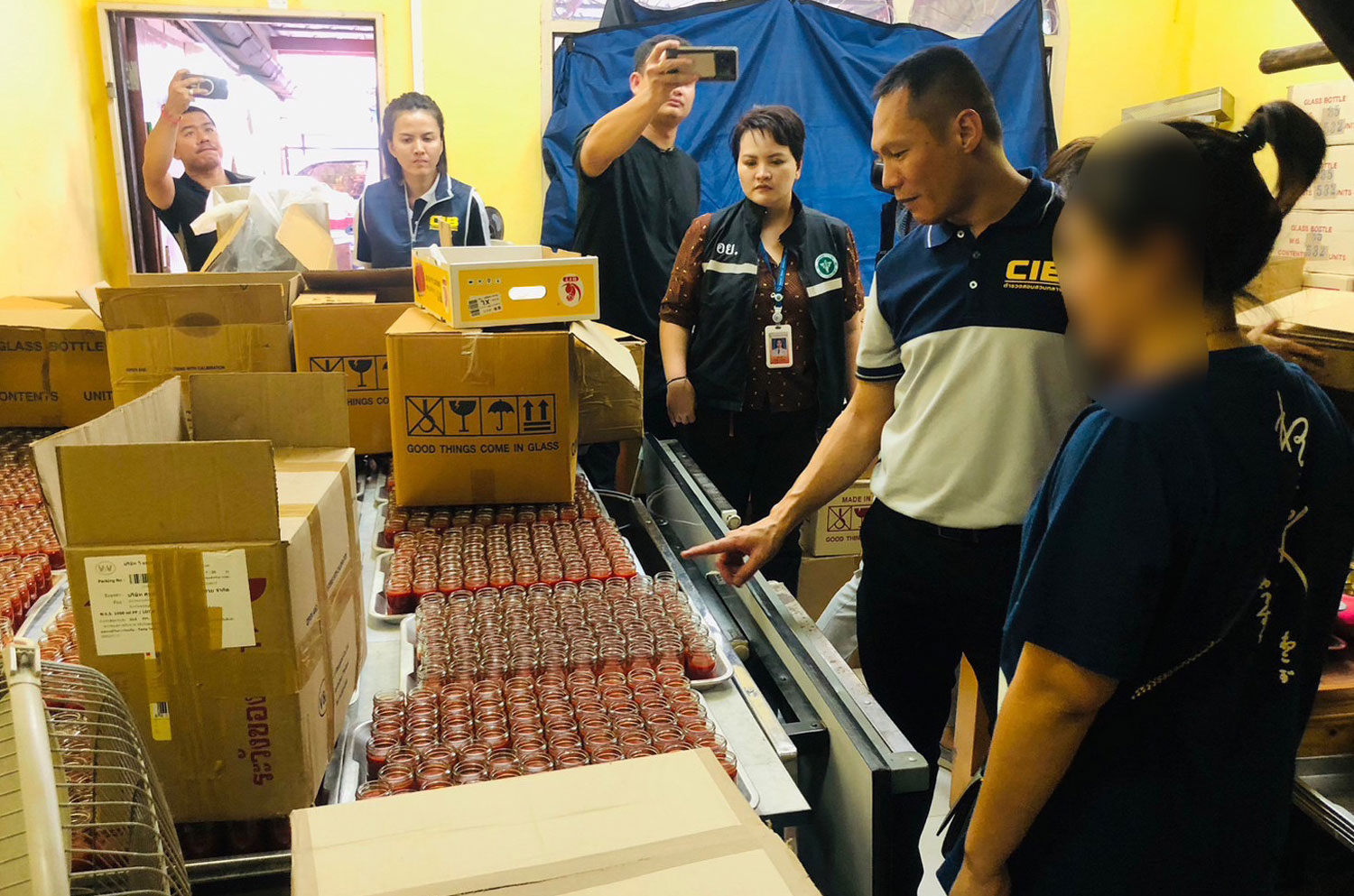
Police have confiscated fake herbal products worth about 4 million baht during raids on four locations in Bangkok and Pathum Thani following an investigation into sales of the products by Chinese nationals to Chinese tourists.
The raids took place on May 18 at two shops, a warehouse and a house, said Pol Maj Gen Anan Nanasombat, commander of the Consumer Protection Police Division (CPPD).
Officials from the Food and Drug Administration (FDA) joined CPPD officers in searching the premises for illegal health products, he said on Friday.
In the first location, the team seized 4,579 items of fake herbal medicines and herbal products at a shop on Soi Kasemsuk off Pracharatbampen 15 Road in Huai Khwang district of Bangkok.
Another shop on Pracharatbampen Soi 6 in Huai Kwang district was raided and 12,807 fake medical products were seized.
At a warehouse in Lam Luk Ka district of Pathum Thani, the team seized 64,900 fake herbal products, documents detailing purchase orders, product labels, raw materials and equipment used for packaging.
At a house in Bang Bon district of Bangkok, investigators found 8,652 fake herbal products, 853 other products awaiting packaging, raw materials and production equipment.

Pol Maj Gen Anan said the products seized were being marketed under a total of 27 brands, all of them fake.
On Thursday, CPPD officers took legal action against Samunprai Thai Siam Co and its three executives — Thai national Phimphitcha Thanasingwat, 37, and two Chinese men: Jingcai Zhou, 35, and Zhikang Han, 44. They face charges of colluding to produce and sell fake herbal products, producing and selling herbal products without permission, producing and selling unregistered herbal products in violation of the Herbal Product Act.
All three confessed to the charges, saying they had been making and selling the products for about a year, said Pol Maj Gen Anan.
An extended investigation found that a group of Chinese nationals had hired Thai people to make herbal products for sale to tourists, particularly Chinese. Pharmaceutical registration numbers of other products were used to make consumers believe the goods had received FDA approval.
The fake products were mostly sent to shops operated by Chinese nationals and frequented by tour guides who handled Chinese customers, said Pol Maj Gen Anan.








